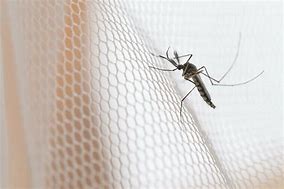Ghana has witnessed a remarkable 45% decrease in malaria cases among children under five, a significant achievement attributed to the introduction of malaria vaccines into the routine immunization program. Malaria, a major cause of child mortality in Ghana, historically posed a grave threat to the health of young children, with the under-five demographic bearing the brunt of its devastating impact. The Ghana Statistical Service has documented a substantial decline in malaria prevalence among children under five, dropping from 26.7% in 2014 to 8.6% in 2022, highlighting the effectiveness of targeted interventions. This decline demonstrates the impact of proactive strategies employed by the National Malaria Elimination Programme (NMEP), including the pioneering use of malaria vaccines for young children, a crucial step towards eradicating this debilitating disease.
The rollout of malaria vaccines, initially implemented as a pilot program, marked a pivotal moment in Ghana’s fight against malaria. The R21/Matrix-M malaria vaccine, endorsed by the World Health Organization (WHO), has been instrumental in reducing severe malaria cases in endemic areas. Concentrated efforts in 43 malaria-endemic districts across the Upper West, Northern, Savannah, and Western North regions led to the administration of 1.3 million vaccine doses by the end of 2022. This widespread vaccine uptake represents significant progress, particularly for a newly introduced vaccine still undergoing pilot testing. The four-dose regimen, integrated into the routine immunization schedule, targets children under two years of age, with doses administered at six, seven, nine, and eighteen months. The success of the pilot program paved the way for the expansion of the malaria vaccine program into routine immunization across a broader geographical area.
The positive outcomes observed during the pilot phase of the malaria vaccine program prompted its integration into routine immunization. Recognizing the efficacy of the vaccines, the Expanded Programme on Immunisation incorporated the malaria vaccine into its schedule, extending its reach to 135 districts. The program has demonstrated high coverage rates, with 80% coverage for the third dose, indicating strong community acceptance and adherence. Encouragingly, a substantial number of children have also received the fourth dose, administered in the second year of life, further solidifying the program’s impact. The NMEP attributes the significant reduction in confirmed malaria cases nationwide to the combined effect of existing interventions and the newly introduced vaccines.
Ghana’s commitment to combating malaria has been bolstered by ongoing support from Gavi, the Vaccine Alliance, since 2001. This partnership has been instrumental in bolstering immunization coverage and achieving notable successes in disease prevention. As Ghana prepares to transition away from Gavi’s support, the focus shifts toward achieving self-sufficiency in its immunization program by 2030. This strategic objective, spearheaded by the Ministry of Health in collaboration with the Ministry of Finance, aims to solidify the gains made in malaria control and ensure the long-term sustainability of the program. The roadmap towards self-sufficiency reflects Ghana’s dedication to safeguarding public health and eradicating malaria.
The remarkable reduction in malaria cases among children under five underscores the effectiveness of a multi-pronged approach to malaria control. The integration of malaria vaccines into the routine immunization program, coupled with existing interventions, has significantly decreased the burden of malaria in Ghana. The high vaccine coverage rates and the positive outcomes observed in the pilot phase highlight the program’s success and its potential for broader implementation in other malaria-endemic regions. Ghana’s proactive approach to malaria control serves as a model for other countries grappling with this devastating disease, demonstrating the power of targeted interventions and strategic partnerships in protecting vulnerable populations.
Ghana’s journey towards malaria elimination exemplifies the transformative potential of public health interventions. The introduction of malaria vaccines, coupled with strong community engagement and strategic partnerships, has dramatically improved the health outcomes for children under five. As Ghana progresses towards self-sufficiency in its immunization program, the country’s commitment to malaria eradication remains unwavering. The success of this program not only protects the health of Ghanaian children but also provides valuable insights and inspiration for other nations striving to eliminate malaria within their borders. This achievement highlights the importance of investing in innovative solutions, strengthening health systems, and fostering global collaboration to combat preventable diseases and achieve sustainable development goals.














